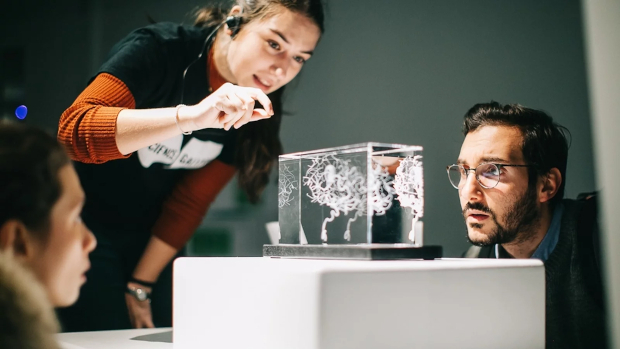
Science Gallery closure another blow to Ireland’s STEM ambitions
Earlier this year I posted a hot take to this blog about the dissolution of the Digital Hub Development Agency (DHDA) and its impact on the commercial and cultural life of the Liberties in Dublin. Since its foundation in 2003 the Hub played host to numerous international and indigenous companies that went on to become household names. Lonely Planet, Havok, Stripe, Amazon all passed through its doors on the way to greatness.
Just as important has been the DHDA’s local outreach programmes that sought to close the digital divide by providing short courses, creative outlets, and an artist-in-residence programme among others.
The DHDA was an important proof of concept. Business, art, and community can enhance each other through cultural exchange.
However, mounting debts and the residential property crisis sealed the fate of the Hub. The site is being transferred to the Land Development Agency for the building of social and affordable housing.
The decision has been criticised in the media and by Dublin City Council chief executive Owen Keegan, who said the decision had been made without consultation and moves had been afoot to transfer responsibility for the DHDA to the council, away from government.
At the time I wrote that perhaps the tech sector itself will step up to provide similar levels of community engagement. I find myself having to make this call again with another stalwart of Ireland’s science, technology, engineering and maths education effort: the Science Gallery.
As with the Digital Hub, the Science Gallery has been an unmitigated success in its mission of promoting the sciences through art, turning the interesting into the fantastic through novel forms of presentation and engagement. By adding ‘art’ to the traditional STEM definition, STEAM (science, technology, engineering, art and maths) challenges us not to learn, but to find ways to communicate that knowledge. It was a gamble when it opened in 2008 with the awesome Lightwave exhibition and delivered over and over with exhibitions devoted to understanding fake news, our diets, how viruses work and the concept of the human body.
Such has been the success of the Science Gallery that in 2012 the Science Gallery Network was launched, with eight galleries across Europe, the US and, latterly, Australia.
In Dublin, the Gallery is a modern exhibition space and a cosmopolitan meeting point, a highly rated tourist attraction with award-winning programming. It has undoubtedly succeeded in its mission. Now concerns over its commercial viability have led Trinity College to announce the Science Gallery’s closure next February.
Losing one ground-breaking institution in one year is depressing but to lose two is maddening. At a time when Ireland is working to fill thousands of tech jobs, it’s essential that a talent pipeline is nurtured from primary to third-level education. With the carrot of a low corporate tax rate about to be replaced with a more equitable international regime, the quality of our STEM talent will become the new point of competitive advantage. Closing the digital divide and keeping young people engaged will be pivotal for maintaining Ireland’s position as a linchpin of the European tech sector.
For an educational institution like Trinity College to back away from the Science Gallery is another example of short-term thinking undercutting success and academic impact over the longer. A young person’s worth can’t be judged on the basis of a visit to the Science Gallery, but it will be in the ten years’ after through their passion, their ideas, their start-ups, spin-outs, acquisitions or published articles.
The past two years have been devastating for our physical and mental health. Culture and curiosity are essential for wellbeing and resilience. We pare back our avenues to explore these at our peril.







Subscribers 0
Fans 0
Followers 0
Followers